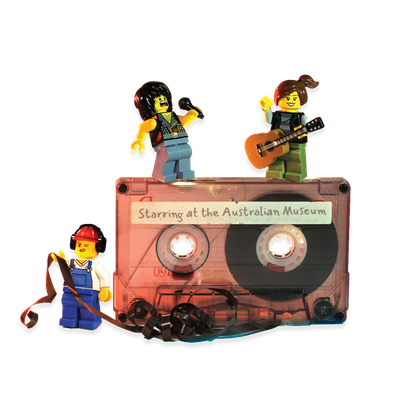Your search returned 6 results
By Page Type
By Tag
- All
- fish (966)
- blog (696)
- fishes of sydney harbour (401)
- First Nations (299)
- Blog (236)
- AMRI (169)
- archives (164)
- Eureka Prizes (146)
- Aboriginal and Torres Strait Islander (135)
- insect (126)
- Ichthyology (124)
- geoscience (109)
- minerals (102)
- climate change (99)
- podcast (94)
- Fish (91)
- Anthropology (89)
- International collections (80)
- Minerals Gallery (78)
- wildlife of sydney (78)
- Labridae (77)
- frog (74)
- gemstone (70)
- photography (66)
- history (64)
- Mollusca (60)
- gem (59)
- staff (59)
- Birds (56)
- Gems (56)
- Indonesia (56)
- education (56)
- shark (55)
- AMplify (54)
- people (53)
- earth sciences (50)
- exhibition (50)
- past exhibitions (50)
- Gobiidae (48)
- sustainability (46)
- Pomacentridae (45)
- Serranidae (44)
- lifelong learning (42)
- science (42)
- Earth and Environmental Science (41)
- Syngnathidae (41)
- Ancient Egypt (40)
- Bali (40)
- bird (40)
- dangerous australians (40)
-
Dinosaur - Tyrannosaurus rex
https://australian.museum/learn/dinosaurs/fact-sheets/tyrannosaurus-rex/Tryannosaurus rex T. rex is one of the most popular and enduring dinosaurs of all, starring in movies and children’s shows as well as featuring in pop culture memorabilia.
-
Dinosaur - Xiongguanlong baimoensis
https://australian.museum/learn/dinosaurs/fact-sheets/xiongguanlong-baimoensis/Xiongguanlong means ‘dragon from Xiong Guan’ in Mandarin, and baimoensis is from the Mandarin for ‘white ghost’, referring to the ‘White Ghost Castle’ formation near the fossil site. This meat-eater was an early tyrannosaur that grew to about 5 metres long.
-
Dinosaur - Dilong paradoxus
https://australian.museum/learn/dinosaurs/fact-sheets/dilong-paradoxus/This small, earlier relative of Tyrannosaurus rex was the first tyrannosaur found with direct evidence for feathers.
-
Dinosaur - Daspletosaurus torosus
https://australian.museum/learn/dinosaurs/fact-sheets/daspletosaurus-torosus/Stocky and powerful, Daspletosaurus was the king predator of its time, 10 million years older and than T. rex. Up to nine metres long, Daspletosaurus was a formidable beast with heavy bones, a muscular tail and crests above its eyes.
-
Dinosaur - Alioramus altai
https://australian.museum/learn/dinosaurs/fact-sheets/alioramus-altai/Alioramus means ‘other [evolutionary] branch’ in Latin. The species name altai refers to the Altai Mountains, near the fossil site where the species was first found. This species is one of the smallest of the subfamily Tyrannosaurinae, and was about half the size of the closely-related Tyrannosaurus
-
Dinosaur - Albertosaurus sarcophagus
https://australian.museum/learn/dinosaurs/fact-sheets/albertosaurus-sarcophagus/Albertosaurus means ‘lizard from Alberta’ in Greek (in honour of Alberta, Canada, where many of the fossils have been discovered) and sarcophagus is Greek for ‘flesh-eating'. It was the top predator of Late Cretaceous Canada, and was the most common of the large carnivores found in Alberta.
-
Discover more
2025 Australian Geographic Nature Photographer of the Year
Special exhibition
Free entry
Now open -
Discover more
Unfinished Business
Special exhibition
Free entry
Now open -
Discover more
Wansolmoana
Permanent exhibition
Free entry
Open daily -
Find out more
Burra
Permanent kids learning space
Free entry
10am - 4.30pm![]()
-
Discover more
Minerals
Permanent exhibition
Free entry
Open daily![]()




